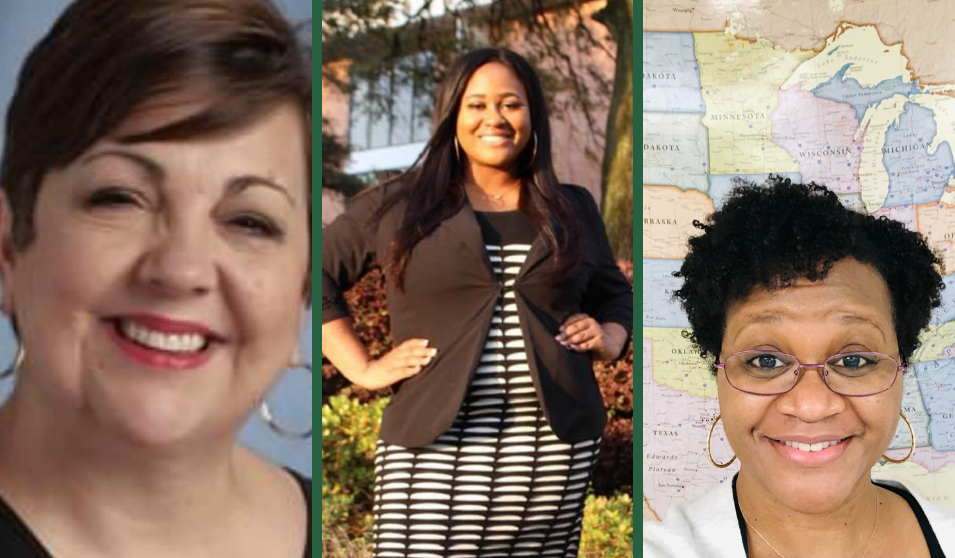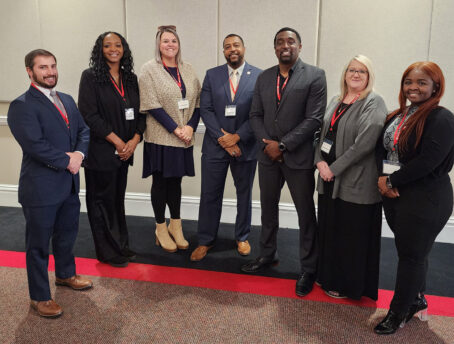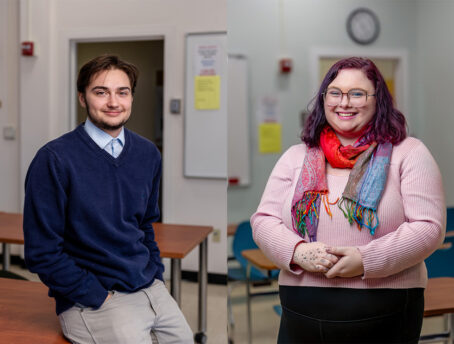Few teachers join the field seeking lavish praise and recognition. Instead, the desire to do good for students and give back to communities drives teachers to embrace their profession. This is especially true for rural educators, who are often leaders in their community beyond the classroom. RSC is honored to continue celebrating rural teachers making an impact - and there is a lot to celebrate in Mississippi. More than half of Mississippi's schools are designated as rural.
Hoping to recognize teachers’ exemplary work, passion, and innovation, the Program of Research and Evaluation for Public Schools and NREA-affiliated Mississippi Rural Education Association (MSPREPS) host an annual Rural Teacher of the Year award. Through this program, the MSPREPS team spotlights one outstanding rural educator from each of Mississippi’s four Congressional Districts. The awardees are featured prominently at MSPREPS’s yearly conference, where the overall state winner is announced. Earlier this year, MSPREPS announced Jamesha Keithley, Aquenetta Davis, Mallory Carlise, and Susan Spiers as the 2022 recipients of the honor.
Patti Permenter, associate director of MSPREPS, invited the recipients to share their stories with RSC. We were able to sit down with three of the nominees, Jamesha Keithley, Aquenetta Davis, and Susan Spiers for a deeper dive into their teaching journeys.
Jamesha Keithley - Leland Middle School, Leland, MS
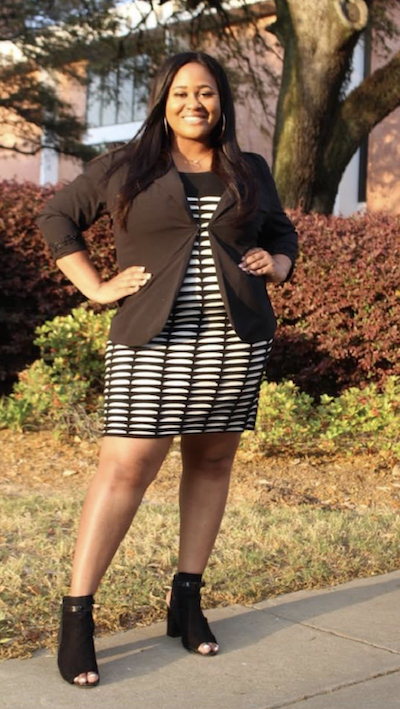
Teaching 8th grade science not far from her hometown of Greenville, Jamesha Keithley was inspired to join the teaching profession through her own commitment to serve the children in her area, including her niece and nephews. As the youngest of five children, Ms. Keithley places great value on working together to support the greater community. So, when it came time for her to plot her course in life, she did not think twice about becoming one of the few members of her family to graduate from college. She knew that this was a crucial step in realizing her goals: “I have people looking up to me, so I had to graduate college and high school.”
Although she originally “had her heart set on medical school,” helping her niece with homework motivated Ms. Keithley to explore teaching as a way of continuing to serve others. Now four years into being a science teacher at her mother’s old school in Leland, Ms. Keithley affirms about her chosen path that, “God led me here, and I do not have any regrets in the world.”
Though still early in her career, Ms. Keithley’s clear passion for her work, and dedication to her students and community, motivated her school administrators to nominate her as their Congressional District’s Rural Teacher of the Year. PREPS reports that Ms. Keithley was selected because “she models success by holding herself and her students to high standards, and by tempering that with empathy.” This was evidenced by Ms. Keithley’s work to collaboratively establish a community garden and outdoor classroom at her school.
“It was the science department,” Ms. Keithley explains. “We came up with something that addressed how our kids were getting unhealthy, and I just wanted them to know the importance of healthy eating…We cannot expect them to know if we hadn't modeled or showed them or taught them.”
As a scientist, Ms. Keithley’s push for healthy lifestyles came hand-in-hand with the recognition that locally-grown food is also good for the environment. “The definition of sustainability to me, honestly, is making sure you appreciate the environment,” she says, “When you're growing your own food, you know what you're putting in [the environment].”
Collaboration was key to the whole project. In addition to “teachers, students, previous students, some of our athletes, people from the community, and some of the parents,” Ms. Keithley shares how they “partnered with Delta Health Alliance and Mississippi State University, and it was awesome! I am so glad that I had partners with these agencies, and they came up with great ideas.” Ms. Keithley underscores that the reason for including so many folks in the process was “to help build up that area, so we use it, and it's not just signs.”
The garden at Leland Middle School was officially opened with a ribbon cutting ceremony last year, and already students and teachers have been busy planting figs, raspberries, tomatoes, and more. Yet the true spirit behind Ms. Keithley’s vision for the garden lay in the act of breaking out of the classroom, and out of virtual space. Ms Keithley reveals that she’s “not the kind of teacher that holds kids within four walls. I want them to get out and explore, and feel independent, and feel that they can explore and do things on their own without me…I only teach eighth grade, but I feel the same for those students in the sixth and seventh grades. They can go out there and feel that same sense of independence.”
For all this, Ms. Keithley was nominated by her school as Rural Teacher of the Year. Looking back on the day she learned that she was selected to receive the honor, she recalls:
“Well, my superintendent nominated me, and honestly, I had no idea. My superintendent came to me one day, and I didn't even know I won, and said he had this huge announcement. We were in the cafeteria, all the eighth grade students and teachers, and I thought we were in trouble because he's usually not the person to make an announcement. So, he made the announcement that I was the Congressional District 2 winner of the Rural Teacher of the Year, and goodness, if I had on mascara that day, it probably would have been all over my face! MSPREPS bought me this beautiful bouquet of flowers, and it was so amazing!”
Aquenetta (Netta) Davis - Strayhorn High School, Tate County, MS
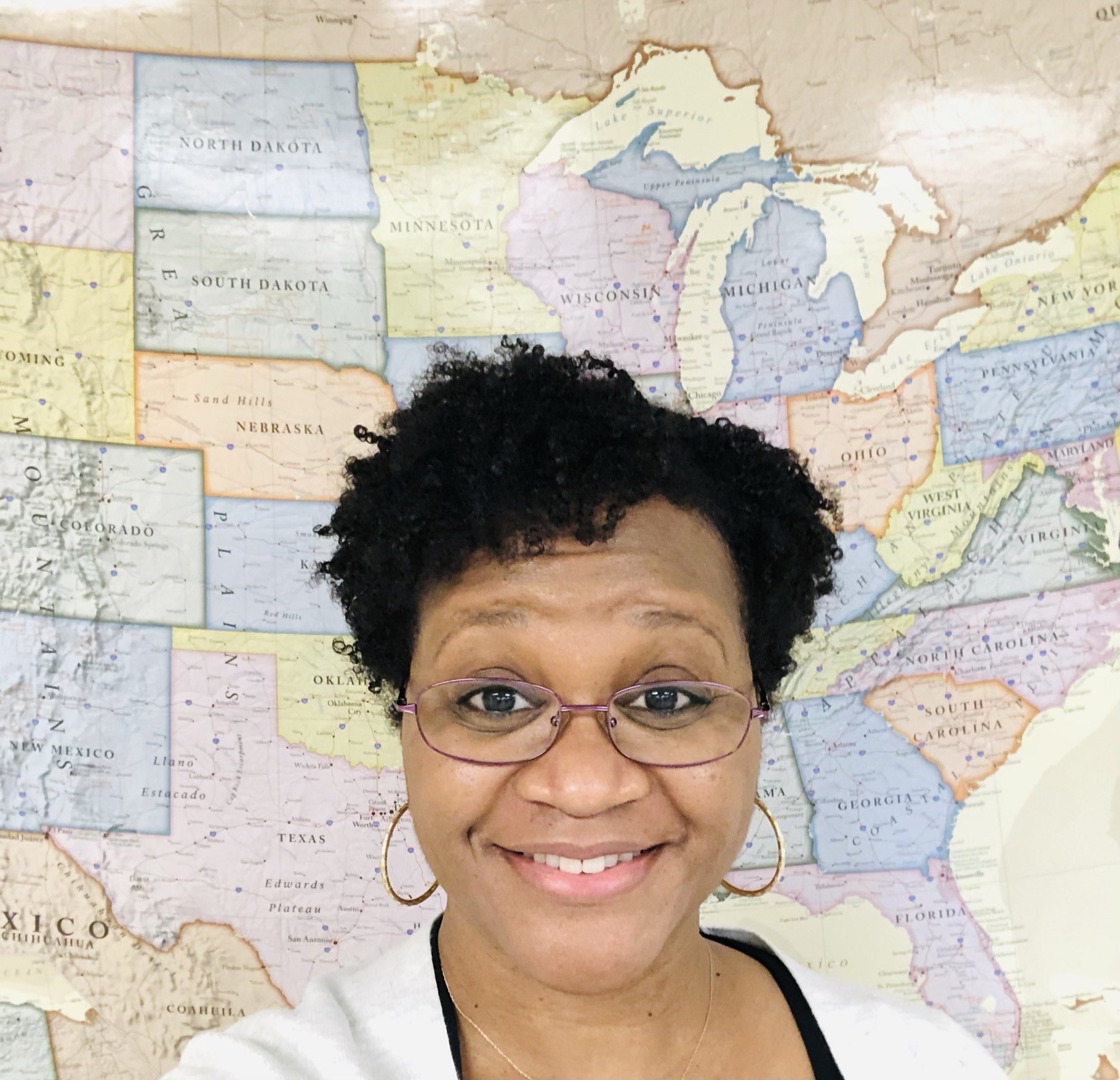
Now in her second year at Strayhorn High School teaching history, Mrs. Aquenetta Davis has traveled a long road to arrive at her current school community, but each step along the journey has imparted lifelong lessons that inspire and empower her daily. “I'm originally from New Orleans,” she shares, “Then I went into the military, met my husband and traveled a good bit around the country, moving.” Though her travels took her as close to home as Mississippi and as far away as North Dakota, her love for history and penchant for uplifting others sparked her next move into the education field. Mrs. Davis explains that she “had a love for history, and decided I wanted to teach, and
went to college. My biggest thing was that I wanted to teach history to students the way I did not learn it when I was in high school. So, it became a huge passion of mine.”
Over the course of her career change, Mrs. Davis credits the professors and mentors she had along the way for helping her become the teacher she is today. “The way my professor I had at the time taught history was ‘doing history’ instead of just learning vocab words or answering some questions at the end of the chapter. I figured, ‘You know what, I can really get kids to understand the various topics within history if they're actually doing hands-on assignments.’”
While her love for history spurred on her career change, Mrs. Davis’s choice to teach rural is a much longer story: “My first teaching experience was in a rural area in North Carolina. When [my husband] retired we thought we were going to lock down in Georgia, so he took a job with the railway, but we ended up in North Dakota. He trained there and then took a position down here in the North Mississippi area, so that's what brought me to this area. I put in an application [to Strayhorn High School] because I'm not a stranger to teaching in a rural community.”
It comes as no surprise, then, that PREPS cites Mrs. Davis’s “adaptability” as “one of the most notable aspects of her dedication to her craft.” Years of traveling in the military, and then two years of teaching through the pandemic, has allowed her to adapt “with respect to learning styles across diverse learners and with developing creative ways with which to convey context and content,” PREPS continues.
Along with her adaptability, it is Mrs. Davis’s mantra that “all students can learn” which defines her work in the classroom. Stemming from her time as a teacher in a rural alternative school, Mrs. Davis shares that “one of the things that I always say is that all students can learn, and that it doesn't matter what their circumstances are. If you are available to those students in any capacity, they will be willing to learn…One thing I totally dislike is disrespecting a student. I try to make sure that I respect all of my students no matter what.”
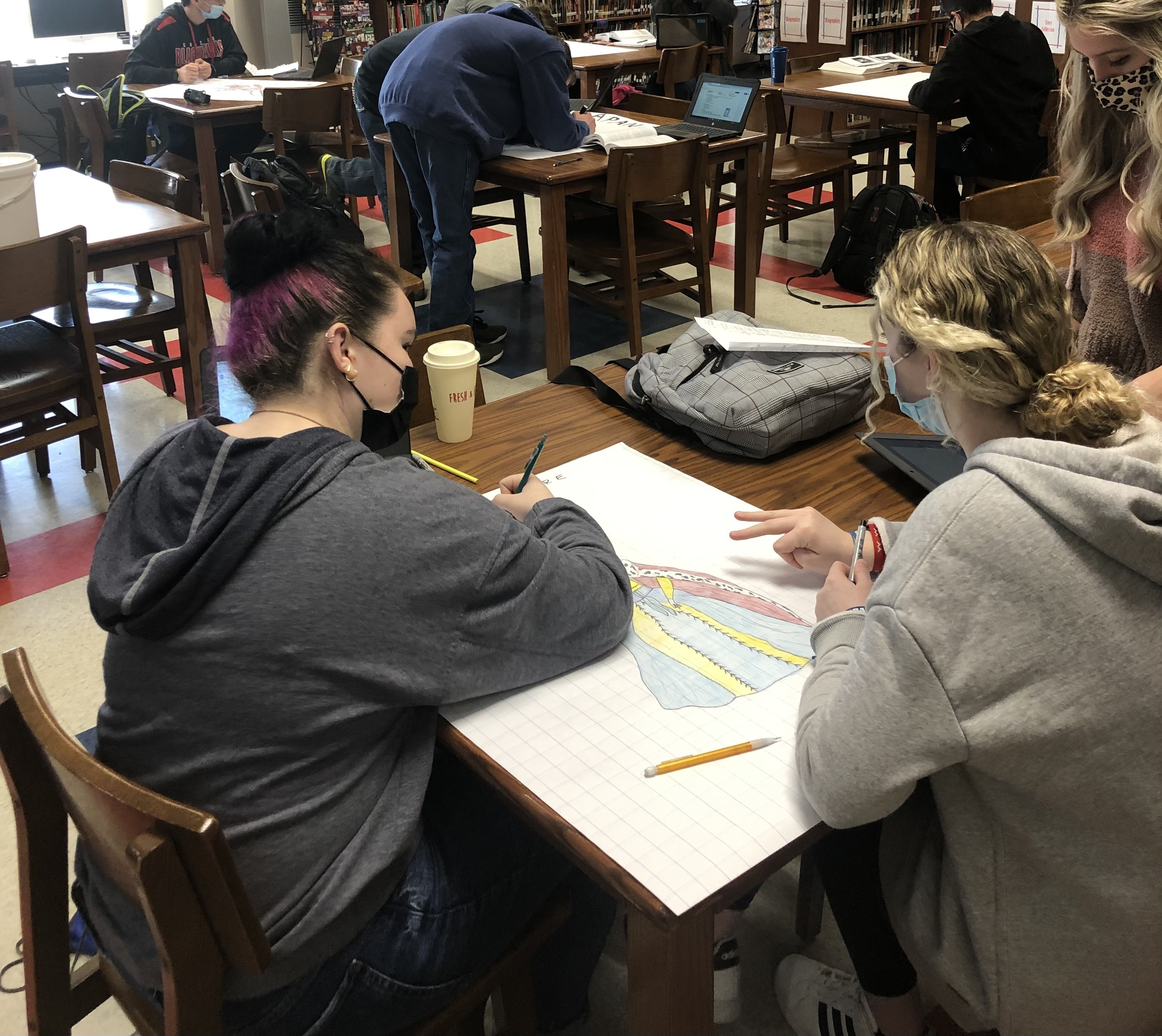
In the classroom, Mrs. Davis works to make learning accessible to all students by allowing them to pursue their interests and engage one another within the context of the lesson: “Some students do develop a love for certain topics and they'll come and tell me…You have to be open and think about, ‘How do I teach this in a way that they will understand it? How do I get them involved, doing scenarios, and debates?” One way of doing that, she continues, is through in-class “socratic seminars where the students will read about a particular topic and it's all on them. I sit back and listen and grade based on what they're saying overall. It is a conversation amongst the students and I'm not involved at all–that's one of my favorite ways to get them to learn the content because you see them engaged.”
This push to help students “do history,” and her own passion for working to ensure all students feel respected and represented, led Mrs. Davis to work toward a systematic review and revision of her school’s mission and vision statements. “It's a collaborative effort,” she begins, “My principal this past summer sent out a message and said, ‘Who wanted to be involved in recreating our school's mission statement?’ and I volunteered. I had done two years here, and I see sometimes in the students that there's a lack of school spirit…I said, ‘I want to be a part of this, to be able to even introduce [school spirit] to the students on the first day, and open it up to them and get them involved.’ I created an activity, a class activity on the first day of school, and shared it with my other peers as well.”
To honor and reward her determination to uplift students, Mrs. Davis’s district nominated her for the rural teacher of year award. She remembers: “I was sitting at home, sick, and my superintendent asked if, ‘I can do a Facetime with you’, and I said yes because she said she had a surprise. That's how I learned that I was First Congressional District Rural Teacher of the Year. It's quite humbling because I just want to teach. That's all I want–to be able to serve young people–that's all I'm here to do.”
Susan Spiers - South Side Elementary School, Picayune, MS

A veteran teacher who’s spent her whole career in the same town she grew up in, Susan Spiers teaches gifted education in her 2nd-through-6th elementary school in Picayune, Mississippi. Her school and the generations of students she has taught have all become like family to her, and a important facet of daily life:
“I was actually born here 60 years ago. I just turned 60 and I’m still teaching. This is my 39th year teaching, and I'm going to do one more after making it 40. Then, I'm not really sure. I can't leave education though; I'll tell you that it'll be something in education, preferably with the school district that I teach now, that's my dream.”
As important as teaching is to her now, Susan shares how she stumbled on her love for working with children by chance in college:
“I did not have a major in college until I was a sophomore, and I thought I wanted to be a journalist but that was a disaster. So, I took a child psychology class and one of the assignments was to do a study on a child. I worked with a little girl that was four years old and lived across the street from me, and that's when I knew I wanted to work with kids…I decided that I really wanted to be in a classroom and be around a lot of kids every day. I've never regretted it and I feel very fortunate to have had that professor–he really encouraged me to go into education.”
This same penchant for care has driven Susan’s time at South Side Elementary. Located “in a very low income neighborhood adjacent to public housing,” She continues to explain how “the majority of our students qualify for free and reduced lunch.” Even so, Mrs. Spiers underscores that the school community is one of inclusivity, belonging, and mutual support:
“The neighborhood is low income but the atmosphere here is just amazing. We are a family and I would not want to teach anywhere else but here. I just love it so much…We have such a great relationship with the community here; it's just one big happy family.”
And just like family, Susan has devoted her professional and personal time to ensuring that her students are loved, respected, and nurtured into the next generation of leaders. However, catching an advertisement on television by chance sparked an idea for Mrs. Spiers that would not only lead to her nomination as Mississippi Rural Teacher of the Year, but fundamentally transform the lives of young boys in her community:
“I did this about six years or seven years ago. I saw that Steve Harvey has a camp for boys that don't have fathers in the home, and I had a particular student that was a fifth grader at the time and I instantly thought, ‘I ought to get Roman in that program.’ I went online to look it up but found that he wouldn't qualify because they had to be A-B students, and he wasn't, and his mother would have to agree to go to a class in Atlanta, [a six-and-a-half hour drive away].”
Disappointed that this nationally advertised program could not accommodate her student, Susan decided to create a program of her own. “I talked to some of my coworkers and some of my friends, and we raised about four thousand dollars in donations and fundraisers,” she explains.
By pulling together the school community, Mrs. Spiers was able to coordinate the funding, resources, and people needed to launch the Forge Project, a summer camp for boys without a father figure aimed at giving them life lessons they might otherwise miss. She describes the program:
“It's a one-week camp in the summer and we pick them up in the morning and take them home in the afternoon. We feed them breakfast and lunch, and then on Friday night, the last night of camp, we go to a nice restaurant. During the week, they learn skills that a father would normally teach a boy–like changing a tire, tying a tie, how to dance appropriately with a girl, how to talk to girls–and we teach some other things like cooking, there’s at least one cooking lesson during the week, and how to talk to adults. We also have a manners class every time. On Friday night we take them to a restaurant, we give each boy thirty dollars, and we say, ‘Okay these are your choices,’ and we teach them they have to tip 20 percent.”
Ironically, the program does not include blacksmithing lessons, but Susan explains that it’s called “the Forge Project because it helps students forge ahead and forge a new life.” While boys in the program are given a new footing, they never forget the teachers that guided their way:
“Six or seven years ago, we had sixth and seventh graders, so some of my boys are now seniors in high school and they still come to my house all the time, call me all the time, and we just do all kinds of stuff together still. We had a reunion camp this past summer, and there’s usually only 15 boys but we had 35, so that was a bit of a challenge, but I’m still connected to them and I love that about that project.”
With its hope for a new path forward, and staffed by genuinely caring and compassionate teachers like Mrs. Spiers, the Forge Project has continued to grow in popularity, and impact, reaching 50 boys in the program's history so far.
Just as she helps her boys by being an adult role model, Susan shares that her own father inspired her path through life:
“My dad was the most generous, sincere, and helpful person that I knew. He didn't have a jealous bone in his body. He just wanted everybody to be happy and he did a lot of volunteer work. I was taught to do for other people, and to try to make the world a better place. Both of my parents were very involved in the community, in this very community in Picayune, Mississippi.”
For her dedication to students, school, and community, Mrs. Susan Spiers was nominated as her Congressional District’s Rural Teacher of the Year. Looking back on the day she learned of the award, Susan recalls:
“Gosh, it was such a surprise because first of all I looked terrible that day. I said, ‘Y'all could have given me a heads up and I would have dressed a little nicer today!’ I just had a pretty upsetting incident happen in the principal’s office with a student when they walked in with this huge bouquet of flowers and I was like, ‘What is it!?’ My superintendent and I have been joking for a while about whether I was going to teach next year or not for my 40th year, so I was like, ‘Y'all bribing me with flowers to come back next year?’ I had no idea what it was; I was so surprised.”
The Mississippi Rural Teacher of the Year
With the Congressional Winners announced, Susan Spiers joined Jamesha Keithley, Aquanetta Davis, and Mallory Carlisle at the 2022 MSPREPS Conference to determine who would be selected as the overall Rural Teacher of the Year for the state of Mississippi. While only one would be officially awarded the title, all four of these stellar educators perfectly exemplify the power and value of our rural teachers: a profound care for people and place, a creative instinct to build bridges and relationships, and an inherent tendency to lead by example. Mrs. Keithley meditates on the occasion: “Whether it's me or someone else, hats off, because teaching is a work of art. Sometimes you have good days, and you're gonna have your bad days, but to me teaching does not feel like work, honestly. I get up in the morning and I'm looking forward to work, and it's not even work, it's just my passion.”
For Mrs. Davis, too, the whole experience has been “quite humbling.” She reflects that “to reach this height of recognition is quite humbling because now I have to do a lot of self-reflection and say, ‘Okay, what more can I do,’ and, ‘How can I get a little bit better?” because I want to make sure I'm still serving these young people.”
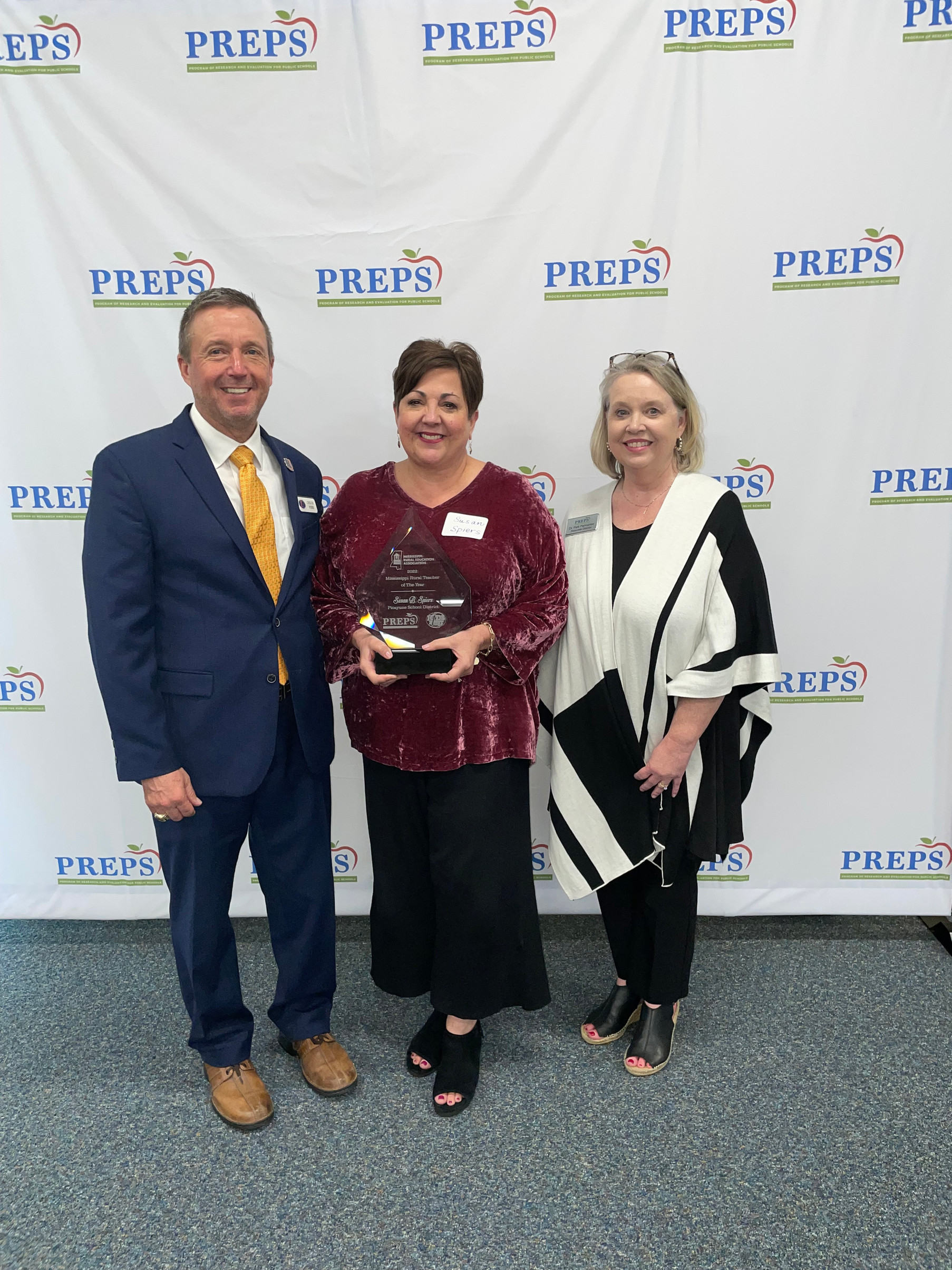
In the end, for her incredible work with the community to give young boys in her town a new lease on life, Mrs. Susan Spiers was recognized as the Mississippi Rural Teacher of the Year. Deeply grateful and humbled by the experience, Mrs. Spiers harkens back to the lessons of her youth that drove her to serve as a teacher, and to be a model for the next generation as well:
“It was just instilled in me that, whatever you're doing, you should be trying to make the world a better place.”
Thank you to the National Rural Education Association and their regional affiliate partners at PREPS and MSREA for their good work in rural education and facilitating the connections that made this storytelling possible. If you’d like to learn more about rural work in this region, please check out our Alabama and the Black Belt Regional Hub partners at the University of West Alabama.

